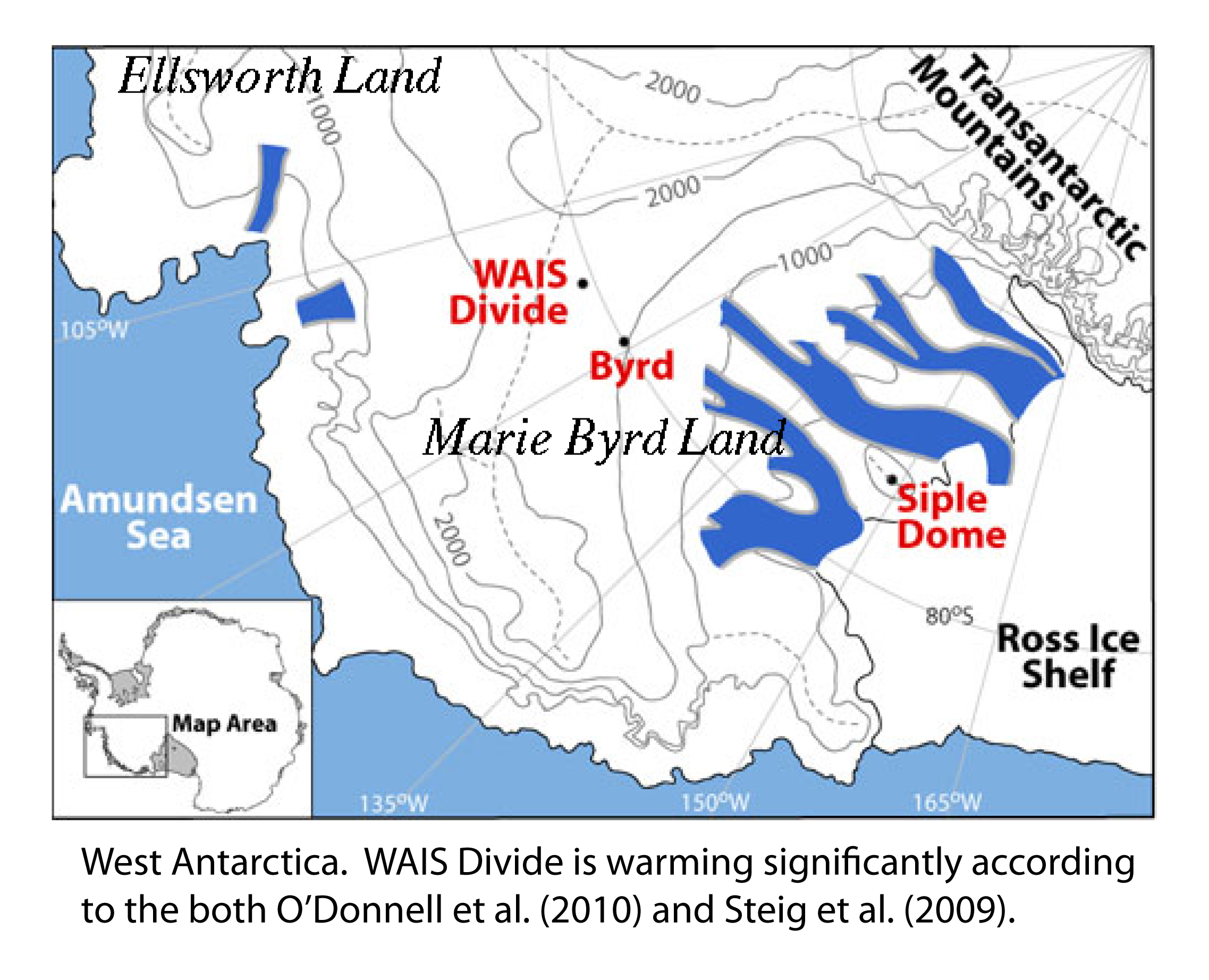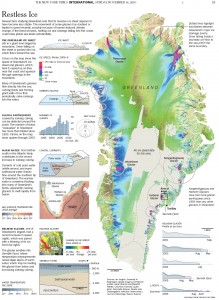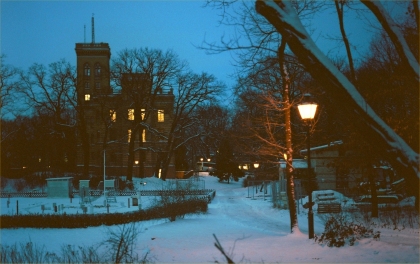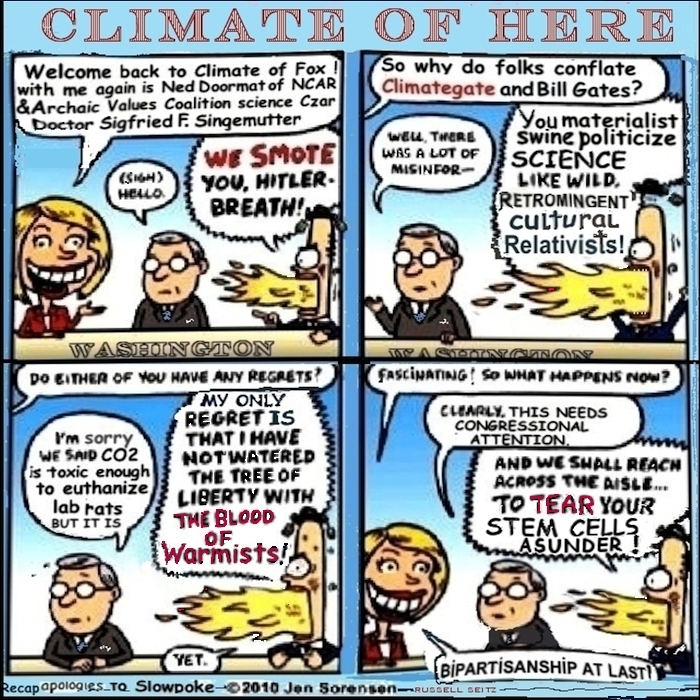During the annual European Meteorological Society’s (EMS) annual meeting in Berlin, I was pleasantly surprised by a magazine called ‘theWeather’, issued by the theWeather Club, an outreach activity associated with the Royal Meteorological Society. TheWeather Club was awarded the EMS outreach & Communication award 2011 for this magazine.
Reporting on climate
Resignations, retractions and the process of science
Much is being written about the very public resignation of Wolfgang Wagner from the editorship of Remote Sensing over the publication of Spencer and Braswell (2011) – and rightly so. It is a very rare situation that an editor resigns over the failure of peer review, and to my knowledge it has only happened once before in anything related to climate science – the mass resignation of 6 editors at Climate Research in 2003 in the wake of the Soon and Baliunas debacle. Some of the commentary this weekend has been reasonable, but many people are obviously puzzled by this turn of events and unsupported rumours are flying around.
[Read more…] about Resignations, retractions and the process of science
Live-blogging the climate science hearings
I will be live-blogging the House Energy and Commerce committee hearings on climate science with Eli Kintisch. The details are available here, and there should be a live feed from the committee website from 10am.
Eli and I did this last year for the last Democrat-run hearings, and it went quite well – a little like a play-by-play from Eli and some background analysis/cites from me. People can ask questions and comment in real time and depending on how busy it gets, they might get a response.
As usual, this hearing will likely be long on political grandstanding and short on informed discussion, but there might be some gems. Of the witnesses, John Christy and Roger Pielke Sr. are the main witnesses for the majority side, while Richard Somerville, Francis Zwiers and Chris Field are the Dem invitees. There is newcomer to the roster (at least to me), in Knute Nadelhoffer, who presumably will discuss climate change impacts on biological systems (but I don’t really know). There is one out-of-left-field witness, Donald Roberts, who is a serially wrong DDT advocate who is probably there in order to dismiss environmental regulation in general, following the well-worn strategy described in Oreskes and Conway’s “Merchants of Doubt” (Chapter 7 on the revisionist attacks on Rachel Carson) (NB. DDT-related arguments are off topic for this blog, but for background of the specifics of the DDT ‘meme’ see this summary, and interested commenters are encouraged to go to Deltoid).
Anyway, for those who are aficionados of science as contact sport (TM, Steve Schneider), it might be fun.
Update: This was also live-blogged at ClimateCentral and twittered by UCS.
Going to extremes
There are two new papers in Nature this week that go right to the heart of the conversation about extreme events and their potential relationship to climate change. This is a complex issue, and one not well-suited to soundbite quotes and headlines, and so we’ll try and give a flavour of what the issues are and what new directions these new papers are pointing towards.
[Read more…] about Going to extremes
West Antarctica: still warming
The temperature reconstruction of O’Donnell et al. (2010) confirms that West Antarctica is warming — but underestimates the rate
Eric Steig
At the end of my post last month on the history of Antarctic science I noted that I had an initial, generally favorable opinion of the paper by O’Donnell et al. in the Journal of Climate. O’Donnell et al. is the peer-reviewed outcome of a series of blog posts started two years ago, mostly aimed at criticizing the 2009 paper in Nature, of which I was the lead author. As one would expect of a peer-reviewed paper, those obviously unsupportable claims found in the original blog posts are absent, and in my view O’Donnell et al. is a perfectly acceptable addition to the literature. O’Donnell et al. suggest several improvements to the methodology we used, most of which I agree with in principle. Unfortunately, their actual implementation by O’Donnell et al. leaves something to be desired, and yield a result that is in disagreement with independent evidence for the magnitude of warming, at least in West Antarctica.

[Read more…] about West Antarctica: still warming
Overheard in the newsroom
Reporter doing a phone interview: “Please slow down, professor. You’ve been researching this topic for a decade. I’ve been researching it since lunchtime.”
From here (h/t Josh).
Forbes’ rich list of nonsense
Guest commentary from Michael Tobis and Scott Mandia with input from Gavin Schmidt, Michael Mann, and Kevin Trenberth
While it is no longer surprising, it remains disheartening to see a blistering attack on climate science in the business press where thoughtful reviews of climate policy ought to be appearing. Of course, the underlying strategy is to pretend that no evidence that the climate is changing exists, so any effort to address climate change is a waste of resources.
A recent piece by Larry Bell in Forbes, entitled “Hot Sensations Vs. Cold Facts”, is a classic example.
[Read more…] about Forbes’ rich list of nonsense
Coldest Winter in 1000 Years Cometh. Not.
This claim circulates in the internet and in many mainstream media as well: Scientists have allegedly predicted the coldest winter in 1,000 years for Europe. What is behind it? Nothing – no scientist has predicted anything like it. A Polish tabloid made up the story. An interesting lesson about today´s media.
By Stefan Rahmstorf and Olivia Serdeczny
We had read about it a few times and last Wednesday even were asked by German TV about the allegedly coldest winter in 1000 years, predicted by (depending on the source) Polish or Russian climatologists or meteorologists. Reason enough for us to take a closer look at the story behind the story.
It did not take much googling to find the source: various articles on the internet name the Polish scientist Michał Kowalewski, sometimes in the Russian spelling version of Mikhail Kovalevski. A few clicks later we arrive at the original article with Kowalewski´s quotes. Except that Kowalewski does not predict a record winter there – the “millennium winter” merely appears in the headline. A closer reading of the article quickly reveals: the quotes were answers to questions concerning the role of the Gulf Stream for Europe´s climate. The frosty temperatures are hypothetical effects of a breakdown of the Gulf Stream – which, as Kowalewski points out, can be pretty much ruled out.
We asked Kowalewski for his comments on the media coverage and promptly got his answer in an email from Warsaw:
The reports in some media are absolutely unbelievable. A journalist who interviewed me for radio had asked me about the theoretical climatic effects of a breakdown of the Gulf Stream. I answered that this purely hypothetic scenario would lead to much colder winters in Poland. A few days later I found on the internet the article of a journalist who mixed his own words with some of my quotes without their context so well that a completely new meaning came out. An absolutely absurd thesis. My quotes as such are correct, so I was not able to demand a correction.
Winter has Europe in its grip: the Süring-building of the Potsdam Institute.
It’s an interesting and insightful tale how this story spread. Here is a brief chronology:
September, 10. Michał Kowalewski is interviewed by the Polish radio station tok.fm. The same day the website of a Polish tabloid, Gazeta.pl, publishes an article with the headline of a „millennium record winter“ („once-in-a-millennium winter“). A certain Gianluigi Zangari is being quoted at the outset. He has apparently claimed to have found a slow-down of the Gulf Stream in satellite data, which he attributes to the BP oil spill (we did not follow this bizarre claim to the source). Subsequently Kowalewski´s radio interview is brought in – in order to explain the Gulf Stream and its effects on climate in general.
September, 12. „Fakt“, a Polish tabloid, writes „Millennium Winter is Coming!“ Again the BP oil spill is blamed. This time, however, without any reference to Zangari, so readers could easily be left with the impression that this is Kowalewski´s idea.
September, 22. The Voice of Russia reports that the Polish scientist „Mikhail Kovalevski“ is worried about the Gulf Stream breaking down, which Russian scientists counter as being an exaggeration.
Oktober, 4. The Russian RT News Service predicts „The coldest winter in 1.000 years“. Which is explained by the Gulf Stream having slowed down by half. RT refers to Polish scientists: “Polish scientists say that it means the stream will not be able to compensate for the cold from the Arctic winds. According to them, when the stream is completely stopped, a new Ice Age will begin in Europe”. This is where the Russian Vadim Zavotschenkow enters the scene. However, he mentions merely a cold winter: “Although the forecast for the next month is only 70 percent accurate, I find the cold winter scenario quite likely”.
Oktober, 4. The “climate sceptics” website wattsupwiththat, noted for their false reports, takes up the RT piece, presents it together with The Voice of Russia and mentions „Mikhail Kovalevski“. Watts seems to be the bridge for the story´s crossing into the western media. Is it just coincidence that the „record cold winter“ story nicely suits the political agenda of the climate sceptics?
From then on, the story is repeated on many other European media, including serious newspapers and television.
It is staggering how one journalist just copied another, sometimes even embellishing the story, without ever bothering to check the source or ask Kowalewski himself. It took us less than ten minutes of googling to get serious doubts about whether this story was real. The familiar pattern of „Chinese whispers“ emerges here once again – the same that widely spread the false whatevergate-stories.
But the often self-righteous free western press can actually learn a lesson from its Chinese counterpart in this case. The Chinese news agency Xinhua checked the story and issued the following on October, 20.:
A forecast attributed to Polish scientists of the coldest European winter in 1,000 years has drawn plenty of media attention recently but investigations by Xinhua reporters have cast doubts on its veracity.
p.s. There are, by the way, scientifically well-founded attempts to explain the currently cold weather in Europe. The basic check for seriousness: a peer-reviewed journal source is provided, and according to Google Scholar the author has a decent publication record. A millennium-record-winter, however, is not being predicted there.
p.p.s. Should your newspaper have also reported this turkey, feel free to write a polite letter to the to editors asking for a correction. It is only if readers demand published information to be verified (or if needed corrected) that something will change to the better.
This article is adapted from the German original at KlimaLounge.
Olivia Serdeczny is a scientist with the Potsdam Institute for Climate Impact Research in Germany.
The new post-partisan world
Sea level rise: The New York Times got the story
Yesterday, the New York Times ran an excellent cover story on sea level rise, together with two full pages inside the paper, fancy graphs and great photographs (online version here). The author, Justin Gillis, researched the piece for months, visited Greenland and talked to most of the leading scientists in the field – many of which he cites in the article. The science presented is correct and up-to-date and the story is a gripping read. That’s how science journalism should be!
 What is going on in Greenland? (c) The New York Times.
What is going on in Greenland? (c) The New York Times.[Read more…] about Sea level rise: The New York Times got the story


